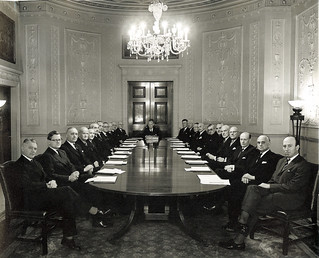 The following are excerpts from letters sent to condoinformation.ca an independent website set up to help condo owners:
The following are excerpts from letters sent to condoinformation.ca an independent website set up to help condo owners:
I was elected to the Board and was the first new member that this Board had had in 8 years. They never accepted me, never considered what I had to say, had meetings without me and I was totally isolated…
Myself and another Board member don't agree with what the others and especially the president are deciding because they're just throwing money at problems that could be solved with better communication and a bit of leg work on the part of our staff. But the two of us just vote with them, in my case because I am afraid of reprisals….
Our Board of Directors resembles mafia like boards controlled by a godfather president. The president of my condo has controlled the board for 20 years [… ] As well, he has installed the soviet style politburo cronies who don’t ask questions and only raise their hands when asked.Does any of this sound familiar? Of the 1, 144 letters sent to the site, more than half discussed problems with condo boards.
When condo board members are caught in conflict the consequences can be far-reaching. Decisions are postponed and the property deteriorates as problems are not addressed. Owners wonder what’s going on and become frustrated with the lack of communication from the board. Meetings may be overly long and frustrating, causing stress for members and their families.
Why do some condo boards have engaged, hardworking members who protect the best interests of the owners, while others are mired in conflict and dysfunction? If you are a condo board member, what can you do to make sure that you and your fellow members can work together effectively?
Whether you are on a newly formed board, or your board has been together for some time, there are steps you can take to make sure that you work together effectively and respectfully.
Spend some time getting to know one another. You don’t have to become best friends with your fellow board members; you don’t necessarily even have to like them. But knowing a little bit about their backgrounds and about who they are as people can go a long way to insure that your interactions stay respectful. Knowing that Sally spends her weekends looking after her elderly parents, or that Jim did a tour of duty in Afghanistan, might help keep things in perspective when differences of opinion arise.
Knowledge is power. Familiarize yourself with the condo act, and with the rules and procedures of your own condo. Understand your rights as an owner, and your responsibilities as a board member.
Decide on ground rules for your interactions. Resentment can arise when people have different expectations for how meetings will be run. Taking a little time to work things out in advance can save a lot of time and effort down the road. Will all members agree to do their homework and be prepared for meetings? How long will discussions go on before a vote is called? When decisions are reached, will the board members support one another, even if they don’t agree with the outcome? Should members agree to keep their discussions confidential, and to avoid negative gossip about internal group dynamics? Committing in advance to respectful conduct helps to ensure that meetings stay focused and productive.
Next time: Some typical problems, and how to move beyond them.
Note: I formulated these ideas with the help of Dr. Pamela Hudak, and a slightly different version of this article appeared in the Spring 2012 issue of The Condo Voice, a publication of the Canadian Condominium Institute. Pam and I work together as Principled Dispute Resolution and Consulting. Contact us if you’d like to learn more about getting your dysfunctional condo board working again.
